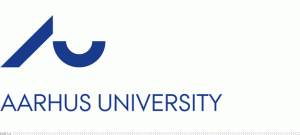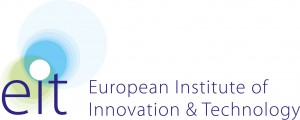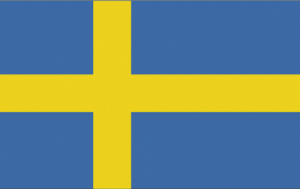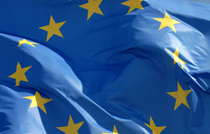 The Central Europe Programme offers funding for projects on the facilitating innovation across Central Europe; improving accessibility to, and within, Central Europe; using our environment responsibly; enhancing competitiveness and attractiveness of cities and regions. The budget for this call is at least €22.5 million and the recommended funding amount is €1m to €2.5m per project. Closing date: 14 October 2011
The Central Europe Programme offers funding for projects on the facilitating innovation across Central Europe; improving accessibility to, and within, Central Europe; using our environment responsibly; enhancing competitiveness and attractiveness of cities and regions. The budget for this call is at least €22.5 million and the recommended funding amount is €1m to €2.5m per project. Closing date: 14 October 2011
Category / EU
Welcome to the EU section of the blog! Emily Cieciura (BU’s Research Facilitator – EU and International), Jo Garrad (Funding Development Manager) and Dianne Goodman (Funding Development Co-ordinator) together try to take the pain out of finding and applying for EU funding by horizon scanning many sources and placing the most important information on this page.
We blog as often as possible on everything from calls for proposals and partner searches, to networking event opportunities, all the latest on Horizon 2020 and international funding. We also use the blog to disseminate information on EUADS (BU’s EU academic training initiative), how to write brilliant proposals, how to find partners and other top tips!
EU Social Sciences and Humanities funding available
 European instrument for democracy and human rights – enhancing respect for human rights and fundamental freedoms where they are most at risk and supporting human rights defenders: proposals should explore the enhancment, respect for human rights and fundamental freedoms in countries and situations where they are most at risk and where human rights defenders and civil society organisations work under severe constraints and are most under pressure. Grants are worth between €150,000 and €2m. Closing date: 1 August 2011.
European instrument for democracy and human rights – enhancing respect for human rights and fundamental freedoms where they are most at risk and supporting human rights defenders: proposals should explore the enhancment, respect for human rights and fundamental freedoms in countries and situations where they are most at risk and where human rights defenders and civil society organisations work under severe constraints and are most under pressure. Grants are worth between €150,000 and €2m. Closing date: 1 August 2011.
European instrument for democracy and human rights restricted call for proposals: proposals should explore contributions to the development and consolidation of democracy and the rule of law and respect for all human rights and fundamental freedoms. Grants are worth between €200,000 and €1.5m. Closing date: 1 August 2011.
European Policy Network on the Education of Children and Young People with a Migrant Background: proposals should address the issues raised by the November 2009 Council conclusions on the education of children from a migrant background and stimulate high-level cooperation between Member State policy makers responsible for social inclusion through education, including cooperation between authorities in the countries of origin and host countries. The network should actively stimulate transnational cooperation primarily at governmental level, but also at the level of experts and practitioners. Grants are worth €500,000. Closing date: 14 October 2011.
Aarhus researchers to map Danish humanities
 The non-profit Velux Foundation has awarded €764,000 to a research group based at to map humanities in Denmark, the university said on 10 June. The researchers will study how the humanities are “bound together” at Danish universities as well as investigate how the humanities disciplines influence and are influenced by social sciences and natural sciences.
The non-profit Velux Foundation has awarded €764,000 to a research group based at to map humanities in Denmark, the university said on 10 June. The researchers will study how the humanities are “bound together” at Danish universities as well as investigate how the humanities disciplines influence and are influenced by social sciences and natural sciences.
EU audiovisual funding available
 The 2012 Media Mundus call for proposals has been launched. The aims of the programme are to increase the competitiveness of the European audiovisual industry, to enable Europe to play its cultural and political role in the world more effectively and to increase consumer choice and cultural diversity.
The 2012 Media Mundus call for proposals has been launched. The aims of the programme are to increase the competitiveness of the European audiovisual industry, to enable Europe to play its cultural and political role in the world more effectively and to increase consumer choice and cultural diversity.
The programme will seek to improve access to third-country markets and to build trust and long-term working relationships. The MEDIA Mundus programme supports cooperation projects between European professionals and professionals from third countries, to the mutual benefit of the European audiovisual sector and the one of third countries.
Deadline: 23 September 2011
South African- EU funding available
 EuropeAid Trade development and cooperation agreement support facility: EuropeAid’s activities encompass the European Development Fund and some 70 budget headings based on over 80 separate pieces of legislation. The purpose of this call is to strengthen relations between the European Union and South Africa. Grants are worth between €150,000 and €250,000. Closing date: 26 August 2011
EuropeAid Trade development and cooperation agreement support facility: EuropeAid’s activities encompass the European Development Fund and some 70 budget headings based on over 80 separate pieces of legislation. The purpose of this call is to strengthen relations between the European Union and South Africa. Grants are worth between €150,000 and €250,000. Closing date: 26 August 2011
Research commissioner argues for open innovation approach
 Máire Geoghegan-Quinn, the Commissioner for research and innovation, has called for Europe to take a broad and open view of innovation to reach its full potential “innovation is increasingly interpretative: looking for opportunities without necessarily having a fixed definition of the problem.“This requires a completely different approach, an open process driven by curiosity and uncertainty…Open innovation is therefore more than a tool, it is an attitude—an attitude we need to turn Europe into a more innovative place,”
Máire Geoghegan-Quinn, the Commissioner for research and innovation, has called for Europe to take a broad and open view of innovation to reach its full potential “innovation is increasingly interpretative: looking for opportunities without necessarily having a fixed definition of the problem.“This requires a completely different approach, an open process driven by curiosity and uncertainty…Open innovation is therefore more than a tool, it is an attitude—an attitude we need to turn Europe into a more innovative place,”
latest Green Knowledge Economy focused EU funding calls
 Literature Review on the Potential Climate Change Effects on Drinking Water Resources:proposal must complete a literature review on the potential climate change effects on drinking water resources across the EU and the identification of priorities among different types of drinking water supplies. Deadline: 1 August 2011.
Literature Review on the Potential Climate Change Effects on Drinking Water Resources:proposal must complete a literature review on the potential climate change effects on drinking water resources across the EU and the identification of priorities among different types of drinking water supplies. Deadline: 1 August 2011.
European Red List of Marine Fishes: proposal must produce production of a European Red List of marine fishes according to IUCN Red List criteria. Deadline: 1 August 2011.
Assessment of Hemispheric Air Pollution on EU Air Policy: proposal must further underpin the policy development within the EU and the CLRTAP on aspects of intercontinental transport of air pollution. Deadline: 10 August 2011.
Blending of Biofuels with Fossil Fuels: proposal must focus on the blending of biofuels with fossil fuels and other ways to market biofuels in order to provide the Commission with the considerations and inputs necessary to report under the Renewable Energy Directive. Deadline: 12 August 2011.
Renewable Energy Policy Support: proposals must provide a thorough and regularly updated database of renewable energy measures, with a focus on financial support and market/grid access for each EU member state, as well as ad hoc analysis on specific relevant topics. Closing date: 19 August 2011
Evaluators criticise European Institute of Innovation and Technology’s governance
The European Institute of Innovation and Technology (EIT) based in Budapest, Hungary, has broadly and quickly met its goals but should change its governance model and be mor e open to external partners and expertise, evaluators say.
e open to external partners and expertise, evaluators say.
In a qualitative report released this month, evaluators note that the EIT successfully set up three Knowledge and Innovation Communities (KICs) that bring together partners from business, education and research.
They praise the relevance of the institute’s concept and recognise that much has been achieved in a short period of time, since 2008.
However, the authors and evaluators recommend that the EIT should extend its benefits more broadly, and develop more links with complementary programmes and engage with a broader range of partners.
University rankings ‘focus too much on research performance’
 University rankings ‘focus too much on research performance’
University rankings ‘focus too much on research performance’
International university rankings are not transparent and focus too much on research performance and elite universities, according to a report released on 17 June by the European Universities Association.
Rankings encourage accountability, but are biased and insufficiently transparent, the authors say…..For instance, humanities are ignored by the bibliometric indicators used in global league tables.
The EUA study reviewed 13 international university rankings, and was funded by the Robert Bosch Stiftung in Germany and the Portuguese Calouste Gulbenkian Foundation.
BU on the EU stage
 Recent research conducted by a team in the School of Applied Sciences (ApSci) has highlighted the need for a collaborative, interdisciplinary approach to environmental management and policy development. It is a project which is well placed in BU’s movement towards research focused on societal themes and aims to establish how stakeholder values of their local environment can be used to improve the effectiveness of ecosystem management creating stronger links between citizens and policy makers.
Recent research conducted by a team in the School of Applied Sciences (ApSci) has highlighted the need for a collaborative, interdisciplinary approach to environmental management and policy development. It is a project which is well placed in BU’s movement towards research focused on societal themes and aims to establish how stakeholder values of their local environment can be used to improve the effectiveness of ecosystem management creating stronger links between citizens and policy makers.
This European collaboration is nearing completion. The Transactional Environmental Support System Project (TESS), supported by the 7th Framework Programme of the European Commission was coordinated by Aristotle University of Thessaloniki (www.tess-project.eu) and involved several ApSci staff. The rationale for this project had its foundations in the move towards citizen-driven environmental governance and policy development. The aim of TESS was to provide a platform through which biodiversity information collected at a local level can be incorporated into policy development and land-use management. Could a system of this type encourage local communities to have more involvement in collection of these important data, and a greater role in the maintenance and restoration of their local environment and ecosystem services?
The project involved partnership with 14 other institutions from 10 different European countries. The project identified what information is required by both local land users and policy makers in order to develop effective environmental policy which will benefit both biodiversity and economic development. The results were tested through 11 local case studies which were then used to further develop the TESS portal (due to go online in the next month or so). BU’s involvement with the project has allowed us to develop strong, collaborative relationships with a number of institutions across Europe, linking strongly with the University’s desire to become more active on the European stage.
During the project, the ApSci team, including Prof. Adrian Newton, Dr. Kathy Hodder, Lorretta Perrella, Jennifer Birch, Elena Cantarello, Sarah Douglas, James Robins and Chris Moody, carried out a local case study within Dorset’s Frome Catchment Area. This case study site falls within the Dorset AONB and includes a SSSI, Local Nature Reserves, National Nature Reserves and Special Areas of Conservation. We were able to incorporate local knowledge and opinion into a novel evaluation of the ecosystem services and biodiversity benefits that might be realised through implementation of SW Biodiversity Implementation Plan. Such strategies have the implicit assumption that working on a landscape-scale to develop ‘ecological networks’ should have potential to facilitate adaption to climate change, increase ecological ‘resilience’ and improve the UK’s ability to conform to international policy commitments, such as the Habitat Directive. However, it is accepted that the cost of the ecological restoration required for such initiatives could be substantial and little work has been conducted on cost-benefit analysis of restoration initiatives. The work carried out by BU for the TESS project addressed the knowledge gap surrounding the cost effectiveness of ecological restoration approaches to climate change adaptation.
We currently have a paper in review with the Journal of Applied Ecology based on this work. It shows that spatial Multi Criteria Analysis could be used to identify important ecological restoration zones based on a range of criteria, including those relating to ecosystem services, biodiversity and incorporating the values of a range of stakeholders. This tool could be of direct value to the development of ecological networks in the UK as a climate change adaptation measure. Such tools developed through TESS may enable future plans for ecological restoration to incorporate local stakeholder values, improving the chances of societal benefits and long-term success of the schemes.
The wider results of the TESS project were presented at a conference in May 2011, hosted by the European Parliament Intergroup at the European Parliament in Brussels. BU was represented at the conference by one of our postdoctoral researches, Emma McKinley.

Norway signs research collaboration agreement with Poland
Norway and Poland signed a research cooperation deal worth 290 million kroner (€37m) on 10 June, the Norwegian research council  . The money is part of a 2 billion kroner deal between the two countries focusing on green technologies, like carbon sequestration projects.The Norwegian research council has welcomed the collaboration. It is a way for Norway to develop its participation in EU framework programmes, said Jesper Simonsen, divisional director in the research council.
. The money is part of a 2 billion kroner deal between the two countries focusing on green technologies, like carbon sequestration projects.The Norwegian research council has welcomed the collaboration. It is a way for Norway to develop its participation in EU framework programmes, said Jesper Simonsen, divisional director in the research council.
New tool to find funding from British Council
 The UK EURAXESS website, which is run by the British Council, has just launched a new feature, allowing researchers to search for new funding opportunities. The types of schemes that are shown include fellowship programmes, study visits and exchange programmes.
The UK EURAXESS website, which is run by the British Council, has just launched a new feature, allowing researchers to search for new funding opportunities. The types of schemes that are shown include fellowship programmes, study visits and exchange programmes.
Researchers should be paid to communicate, Swedish VA says
 Sweden’s academics should be rewarded for communicating their research and for research collaborations, VA, an interest organisation for researchers, suggested in a proposal to government. “Money is an important incentive. That’s why we want collaboration and communication to be taken into consideration when funding is allocated,” says Cissi Askwall, secretary-general of VA.
Sweden’s academics should be rewarded for communicating their research and for research collaborations, VA, an interest organisation for researchers, suggested in a proposal to government. “Money is an important incentive. That’s why we want collaboration and communication to be taken into consideration when funding is allocated,” says Cissi Askwall, secretary-general of VA.
Lund University sees sharp dip in research output
 The number of PhD theses and research articles coming out of Lund University, one of Sweden’s best-known research institutions, has dropped in recent years, despite an increase of public funding for the university. On 13 June, the newspaper Sydsvensken reported that the number of theses from Lund in 2010 was its lowest in 10 years and that the total research output had shrunk by a third compared to 2007.
The number of PhD theses and research articles coming out of Lund University, one of Sweden’s best-known research institutions, has dropped in recent years, despite an increase of public funding for the university. On 13 June, the newspaper Sydsvensken reported that the number of theses from Lund in 2010 was its lowest in 10 years and that the total research output had shrunk by a third compared to 2007.
The advantages of winning EU funding: BU’s Dimitrios Buhalis shares his experiences
 Over the last 10 years I have had the privilege to work on half a dozen European Commission funded projects with a total income of about £1m. Most of them are relating to technology innovations and advantages with a primary focus to tourism and hospitality organisations and regional regions as well as cultural heritage. Getting European funding is complex and requires a lot of work, networking and innovative thinking. Success rates are low and it is quite demanding. Nevertheless there is a great number of benefits that comes with success. These include:
Over the last 10 years I have had the privilege to work on half a dozen European Commission funded projects with a total income of about £1m. Most of them are relating to technology innovations and advantages with a primary focus to tourism and hospitality organisations and regional regions as well as cultural heritage. Getting European funding is complex and requires a lot of work, networking and innovative thinking. Success rates are low and it is quite demanding. Nevertheless there is a great number of benefits that comes with success. These include:
- Cutting edge knowledge of the most cutting edge research problems
- Research that it is relevant to society and has an impact on a European level
- Networking across different disciplines
- Working with colleagues from around Europe
- Funding for research assistants, equipment and travel
- And yes you can travel around and sample the Belgian and not only beers ….
Perhaps the project I enjoyed most as it made me realise the impact that research can do is a recent project which I did when I was still at the University of Surrey. This was about accessible/disabled tourism and I was called to provide expertise on how to deal with information for people with disability that wanted to travel. The project lasted for 2 years and provided a series of key success factor for facilities to use and also guidelines on how those should be systematised for dissemination over the internet. Getting closely involved with people with disabilities and working out on potential solutions opened a whole world for me a
The immediate results of the projects and the other initiatives that emerged are equally impressive:
- The world’s first ACCESSIBILITY MARKET AND STAKEHOLDER ANALYSIS
- The world’s first ever book on Accessible Tourism has been published entitled “Accessible Tourism Issues: Inclusion, Disability, Ageing Population and Tourism (edited by Dimitrios and Simon Darcy and which is available to buy from Amazon) and another one book on Accessible Tourism practice that is at the last face of its editing
- One 4* publication on Enabling access to tourism through information schemes and a number of Journal articles and conference papers
- Two funded PhDs that are about to be completed
- Some more projects and proposals that will emerge soon
- The development of ENAT – the European Network for Accessible Tourism
Although not always easy, involvement with European funded projects are incredibly rewarding for their intellectual stimulation, the exposure to knowledge and networking as well as access to resources. They are also fantastic for impact to society at an international and global scale. We are about to start a new project on Electronic Marketing, mobile phones, location based services, small business and tourism and look forward to cutting edge research.
New name for FP8 just revealed
 Reporting from this years EARMA conference in Portugal, I have just heard a presentation from the DG for Research & Innovation who has revealed that this week the official new name for FP8 was launched -‘ Horizon 2020 – towards a new framework programme for research and innovation’. A bit of a mouthful so at BU we will refer to it as ‘Horizon 2020’!
Reporting from this years EARMA conference in Portugal, I have just heard a presentation from the DG for Research & Innovation who has revealed that this week the official new name for FP8 was launched -‘ Horizon 2020 – towards a new framework programme for research and innovation’. A bit of a mouthful so at BU we will refer to it as ‘Horizon 2020’!
Addicted to Facebook? Bergen researchers launch study
A research project from the University of Bergen aims to chart Facebook addiction among Norwegian users. The aim of the project is to increase the knowledge of addiction to social media in relation to working life and will feed into clinical treatment programmes for addicts.
EU Challenge Social Innovation Conference, calls and networking!
 The Challenge Social Innovation event in Vienna, September will bring all stakeholders active in the field of social innovation under the same roof. Not only does the event sound essential for those in the field to develop knowledge and ideas but the third day of the conference is an information day and network event for EU funding in Social Sciences and Humanities. If you are thinking of applying for EU funding in this field; this conference provides a key opportunity to network and meet collaborators. Read more on our Events page.
The Challenge Social Innovation event in Vienna, September will bring all stakeholders active in the field of social innovation under the same roof. Not only does the event sound essential for those in the field to develop knowledge and ideas but the third day of the conference is an information day and network event for EU funding in Social Sciences and Humanities. If you are thinking of applying for EU funding in this field; this conference provides a key opportunity to network and meet collaborators. Read more on our Events page.












 Upcoming opportunities for PGRs – collaborate externally
Upcoming opportunities for PGRs – collaborate externally BU involved in new MRF dissemination grant
BU involved in new MRF dissemination grant New COVID-19 publication
New COVID-19 publication MSCA Postdoctoral Fellowships 2024
MSCA Postdoctoral Fellowships 2024 Horizon Europe News – December 2023
Horizon Europe News – December 2023